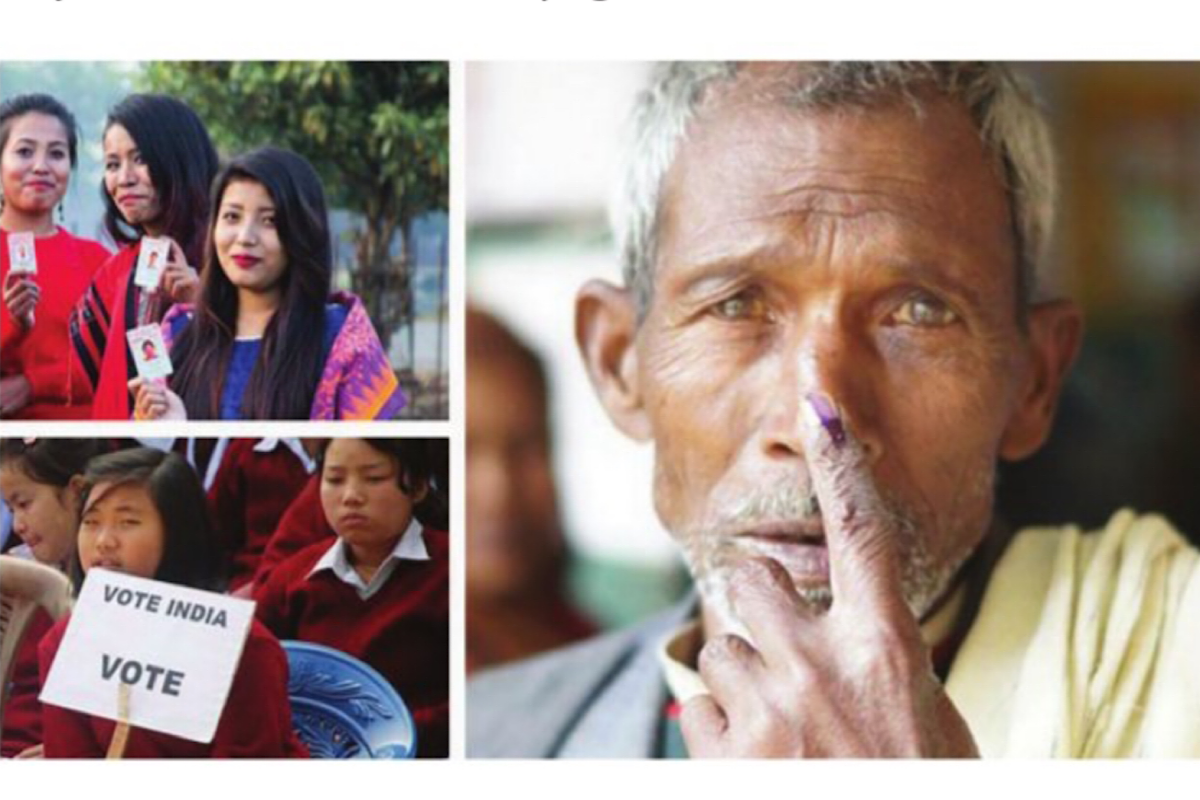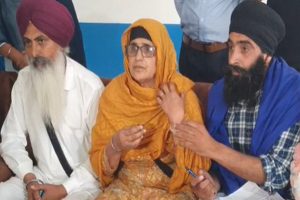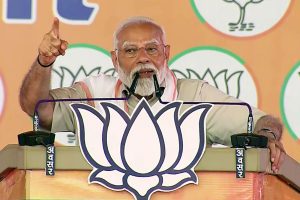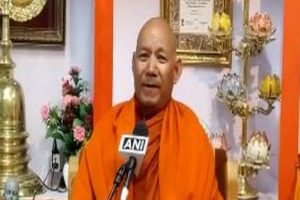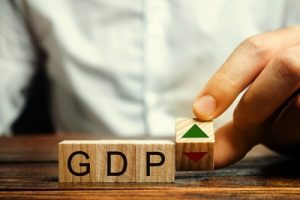A former Chief Election Commissioner (CEC) had described elections as ‘the dance of democracy,’ but unfortunately, according to the present CEC, ‘four Ms’ money, muscle power, misinformation and Model Code of Conduct violations, threaten to spoil the tone of the coming elections. Alarming statistics of seizure of cash and liquor during earlier elections show that this is not an idle apprehension; according to estimates, about Rs.12,000 crore to Rs.15,000 crore cash was given to voters directly during the 2019 General Elections, which pales into comparison with the black money unearthed in subsequent Assembly elections.
Also, despite the presence of Expenditure Observers, almost all candidates spent far beyond the limits laid down by the Election Commission. Taxpayers, too, pay a heavy price for the privilege of voting; the Election Commission spent more than Rs.10,000 crore for conducting the last General Election. Bringing governance to a halt, the Model Code of Conduct (MCC) operates for long periods, which is more than two and a half months for the present elections. Yet, the MCC does not deter wrongdoers, because most election-related FIRs are withdrawn as soon as elections conclude.
The role of media during elections is not above reproach. A large section of the media views elections as manna from heaven, which increases ad revenue, readership and TRPs, not counting illicit earnings through paid and fake news. Election Surveys aired on many prominent TV channels are a case in point. After elections, many such Surveys are found to be far off the mark, with a suspicion of having been commissioned to spread misinformation by particular political parties.
Additionally, even in the third decade of the twenty-first century, the spectre of caste continues to haunt Indian polity. One would have thought that with increasing literacy and awareness, the influence of caste would wane, what with educated voters resenting compartmentalisation on the basis of caste. But the genie of caste mysteriously comes out of the bottle the moment an election is announced. The importance of caste in elections becomes apparent when one reads local newspapers carrying leading articles that give the caste composition of electoral constituencies, along with detailed analyses of the percentage of a particular caste that would vote for a certain candidate.
Such mumbojumbo could have been dismissed as a journalistic innovation, because caste-based enumeration was last done in 1931, and moreover, it is almost impossible to decipher the composition of the votes polled by a candidate. However, political parties rely on caste considerations, right from the selection of candidates. Later on, most party manifestos promise reservation on caste basis. Finally, ministries are often allotted on caste basis. All kinds of fraudsters thrive during election time; some float bogus political parties, to launder black money through political donations. Some others supply muscle power to capture booths, others supply audiences for speeches and participants for processions.
Suppliers of paper, tents, crockery, broken down jeeps etc., hike charges sky high for their wares, but issue bills for smaller amounts to fool tax inspectors and election observers. After results are declared, middlemen come into operation, enticing legislators with offers they cannot refuse. In this ‘win at any cost’ scenario, none of the major parties seriously bat for good governance. Rather, if earlier manifestos are any indication, parties will promise targeted sops, and freebies, ranging from free laptops, free electricity to construction of temples and free teerth yatras.
Competitive populism, hyper-nationalism, hyper-religiosity and a vote-gathering appeal to regional pride has been the mainstay of recent election campaigns, with political parties shamelessly trying to create a ‘we’ versus ‘they’ binary ~ blind to the dangers of unleashing fissiparous tendencies. Canvassing is often marred by personal attacks and threats by leaders of political parties, who shamelessly call each other ‘extortionists’, ‘mafia’ and ‘Pak agents’; such acrimony guarantees that democracy and the public would lose, regardless of whoever wins at the hustings.
This low level of electoral discourse is fuelled by provocative posts in social media, which are almost impossible to monitor. Even otherwise, the Election Commission has a poor record of dealing with purveyors of hate speech. The pitch of political parties for the present elections has been queered by two judgements of the Supreme Court; firstly, by the Sita Soren case, in which the Court held that legislators could be prosecuted should they vote for money. Thus, Aya Rams and Gaya Rams, who survive nay, thrive on the mercy of benevolent Speakers, may sometimes, find the police on their trail. Then, the judgement in the Electoral Bonds case threatens to expose political and corporate corruption of humongous dimensions.
To recapitulate, the Association for Democratic Reforms (ADR) filed a petition in the Supreme Court in 2017, soon after the Electoral Bonds (EB) scheme was announced in Parliament. The petitioners asked the Supreme Court to declare the EB scheme unconstitutional, and to nullify the corresponding amendments to various laws. The Supreme Court allowed the petition on 11 February 2024, and probably, to make up for lost time, directed the State Bank of India (SBI) to supply details of donations received through EBs to the Election Commission (EC) by 12 March 2024, and directed EC to publish such details by 15 March 2024. Barely a week before the Supreme Court deadline, SBI filed a petition asking for time till 30 June 2024.
In a rare display of firmness, the Supreme Court gave SBI a dressing down, and exactly 30 hours to comply with its orders. Thereafter, things moved like lightening; the EC published details of purchasers and acceptors of EBs a day before the deadline. However, the crucial unique identifier which could enable one to connect donees and donors, was missing from both the donors and donees’ lists. The Supreme Court again hauled up SBI, and directed it to submit missing details by 21 March. Even without a definitive link between donors and donees, it appears that some companies have donated money after the visit of enforcement agencies.
Others have donated money, before or after award of lucrative government contracts. Surprisingly, some companies seem to have donated money many times in excess of their net worth, pointing to them being fronts for others, indicating violation of both taxation and electoral laws. The unique identifier may conclusively link donors to political parties, and if the quid pro quo is established, may result in penal action against a large number of corporates and political parties.
Ruling party politicians, including the Finance Minister and Home Minister, have defended the EB Scheme, denying any quid pro quo. Tacitly supporting the Ministers’ stand, the CEC has harped on evolving a mechanism to ‘protect donors’ privacy’ so that they were ‘not harassed,’ not considering that such an arrangement would be against the transparency in election funding, which everyone ostensibly wants to promote. Also, if Electoral Bonds were all that was promised, then why were so many instances of involvement of black money noticed in elections conducted after 2017?
One reason for the rot in the political system is that financial accounts of political parties are never audited by independent auditors, and all parties want the flawed status quo to continue. In a telling instance, after the Delhi High Court found that both the BJP and the Congress had illegally accepted foreign donations, both parties co-operated in nullifying the High Court judgement by retrospectively amending the Foreign Contribution Regulation Act. Looking to the ever-increasing size of electorates, politicians defend the use of money and muscle power by pointing to their need to contact a large number of voters spread over a vast geographical area, in limited time. Voters say that they sell their votes, because candidates do not entertain them after elections get over. Obviously, for a personal connect between the electors and the elected, constituencies need to be smaller.
To reduce the importance of money power, the amount spent by a political party could be added to the candidate’s expenditure. Concomitantly, electoral spending limits should be reduced, to the level that only door-to-door canvassing is possible within the limited budget. Also, legislators changing parties should immediately lose their membership, and CAG should audit the accounts of all political parties.
Limiting the role of big money in elections will definitely lessen corruption in public life. As Steven Magee, author and environmentalist, had observed: “Most politicians are corrupt as they do not represent the masses that voted for them, but rather they choose to return numerous favours to the corporations that funded their election campaigns.”
(The writer is a retired Principal Chief Commissioner of Income-Tax)

